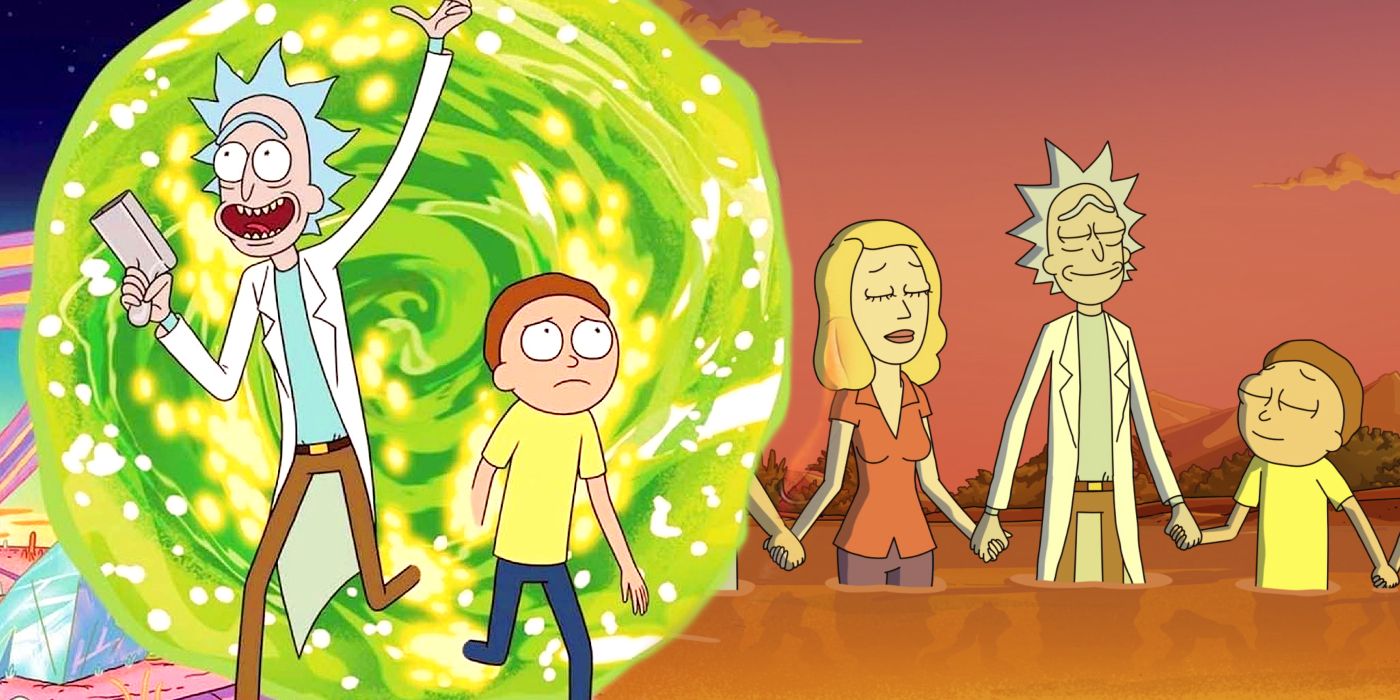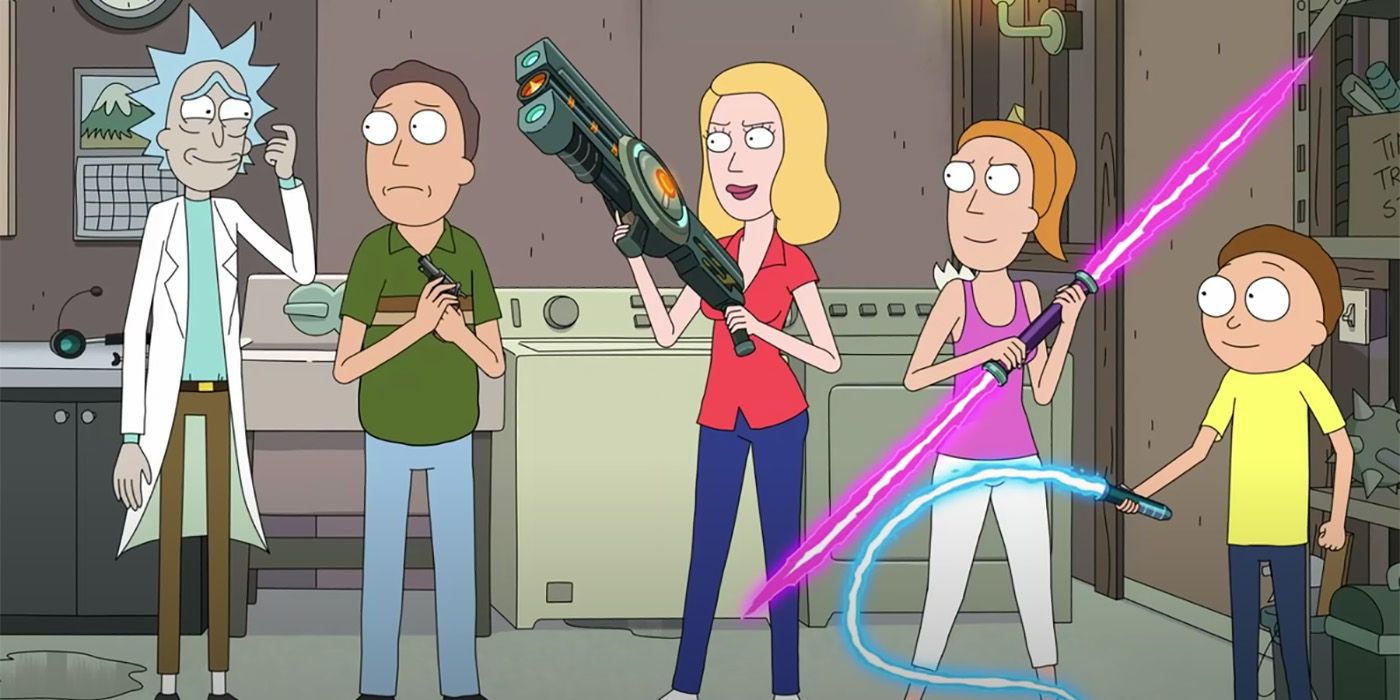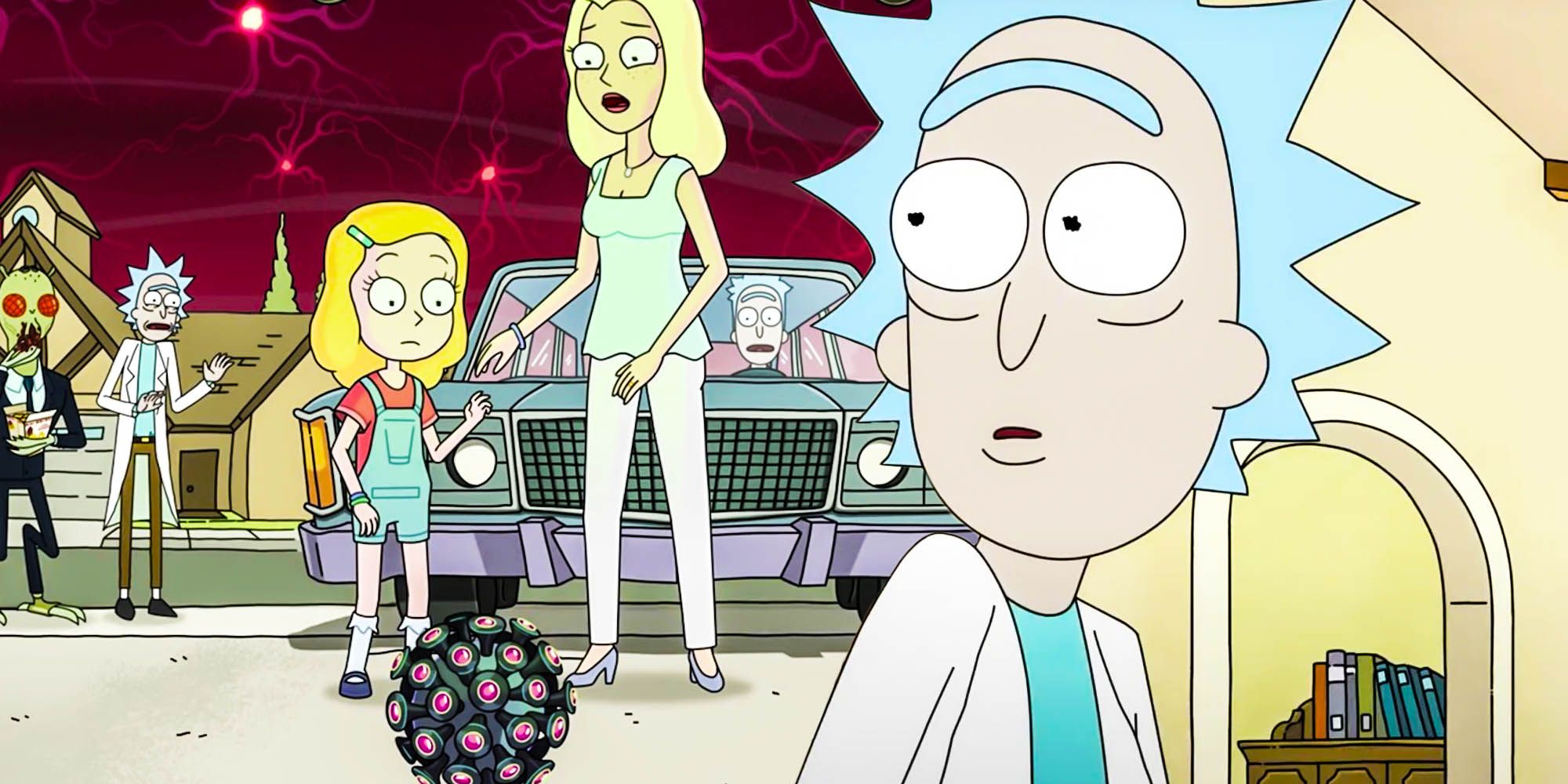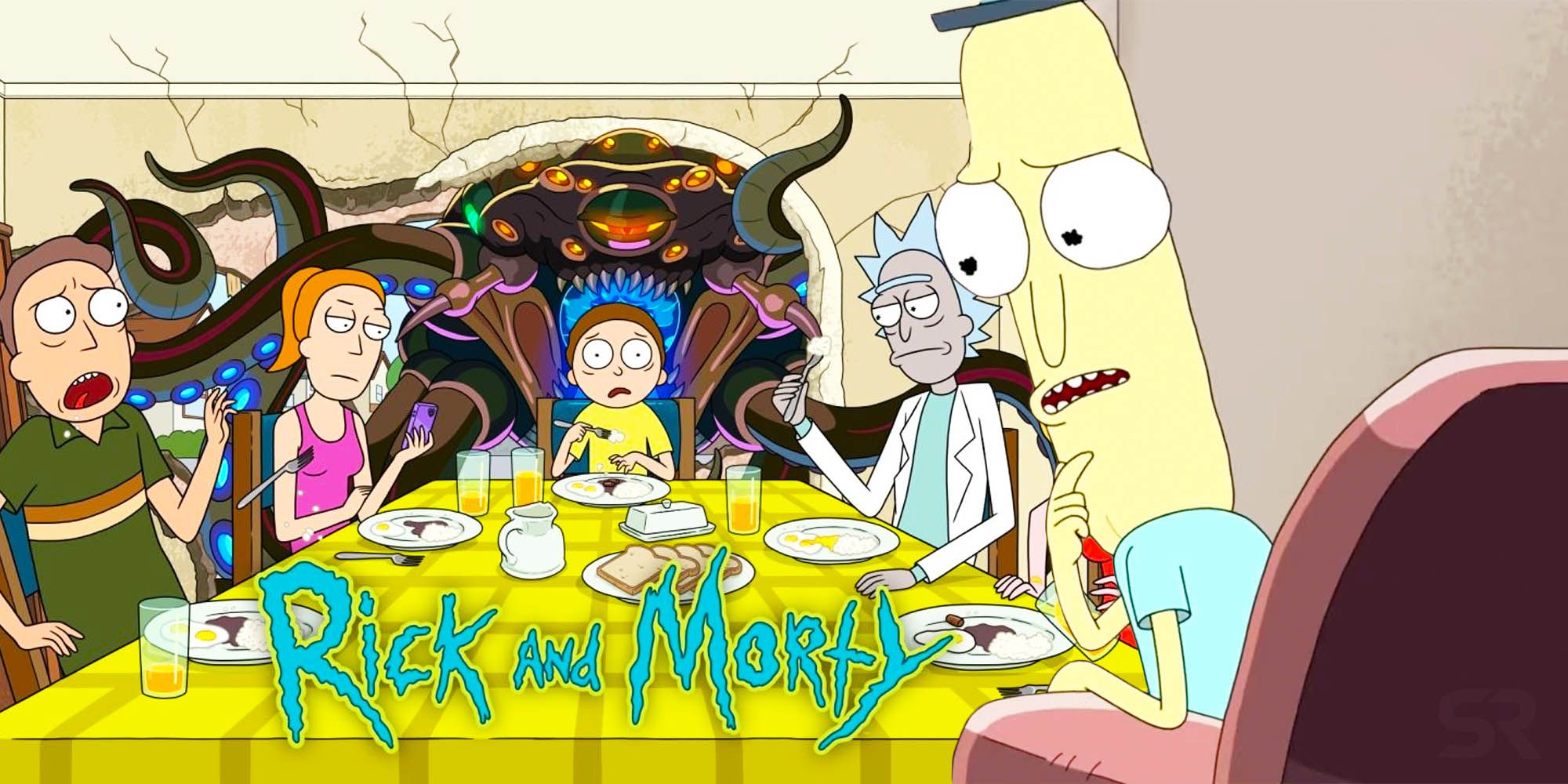The tonal shifts of Rick & Morty season 5 resulted in the show’s silliest but also most poignant outing so far, and this ever-changing atmosphere reflects the outlooks of the show’s two eponymous antiheroes. Since the series began, the Adult Swim hit Rick & Morty has bounced between supporting the divergent views of its two title characters. Morty’s eternal optimism is sometimes rewarded and sometimes brutally punished, while Rick’s seeming nihilism is usually proven right and occasionally treated as a self-fulfilling prophecy that perpetuates his unhappiness.
This dichotomy between the two leading characters and the validity of their respective outlooks was explored extensively throughout season 5. For example, Morty’s season 5 romance with Planetina ended in tragedy, seemingly reaffirming that Rick’s belief in nothing is the safest way to get through life and love without ending up heartbroken. However, other episodes in Rick & Morty season 5 disprove this claim, with the Smith family’s cooperation proving vital to both their happiness and the world’s betterment. This is because season 5 moves between Rick and Morty’s worldviews more pointedly than ever before, highlighting their differences and ultimately explaining why one perspective may be much healthier than the other.
The way that Rick & Morty season 5’s tone switches from light-hearted comedy episodes to heavier, more dramatic stories embodies the differences between Rick’s self-serving outlook and Morty’s belief in collaborative teamwork. Much like Rick & Morty's season 4 heist episode proved that Rick is out for himself even when he appears to be a team player, season 5’s Morty-centric episodes prove that the Smiths are stronger when working together as a unit. Meanwhile, Rick’s lone adventures have a sadder, less light-hearted tone precisely because his character’s apparent cynicism is revealed to be a cover for self-hatred and hopelessness.
Rick & Morty’s Divergent Attitudes Explained
Although Rick claims he is the one who believes in nothing and doesn’t care about an uncaring universe, his season 5 backstory proved he is actually tortured by his past and has been running from it all along. “True nihilism” (for want of a more accurate phrase) is not necessarily aligned with pessimism, as embodied by Morty’s famous line “Nobody exists on purpose, nobody belongs anywhere, everybody's gonna die. Come watch TV?” Conversely, as Rick & Morty’s season 5 finale proves, self-proclaimed cynic Rick has actually always believed in something—the value of family and interpersonal connection, as evidenced by his heartbreak over the death of his wife and child and the despair he feels over Birdperson’s rejection of his companionship.
In contrast, Morty’s blithe acceptance that he can’t control the world or anything in it leads him to seek out adventure and connection, but keeps him from becoming too ambitious, controlling, and destructive. After years of hearing his grandfather claim that nothing matters, nothing lasts forever, and no one can control anything, by season 5 Morty has started to take these lessons to heart and act accordingly. Morty’s wistful acceptance that his long-term love interest Jessica and he simply never met at the right time embodies Rick’s supposed belief that nothing matters more than Rick’s own actions throughout season 5, and Morty’s stories throughout the season tend to be lighter and funnier as a result.
Morty’s Half of Rick & Morty Season 5
“Rickdependence Spray” (season 5, episode 4), “Amortycan Grickfitti” (episode 5), "Rick & Morty's Thanksploitation Spectacular” (episode 6), and “Gotron Jerrysis Rickvangelion” (episode 7) all feature stores wherein the Smith family’s attempt to work together as a unit see them grow closer, even if they occasionally fail in their mission (as in “Rickdependence Spray”). All of these episodes are stories about the interpersonal connections between the family improving when they work together instead of competing with or ignoring one another. Even when their best attempts to save the produce nothing more than a Giant Incest Baby, these plots posit that working together is a worthwhile goal in and of itself, resulting in more comedic and less depressing episodes. Their stories embody Morty’s belief that nothing matters, but it is still worth seeking out connection rather than losing hope—even if that connection comes from nothing more than watching TV together.
Rick’s Half of Rick & Morty Season 5
In contrast, the more internally focused stories of “Mort Dinner Rick Andre” (season 5, episode 1), “A Rickconvenient Mort” (episode 3), “Rickternal Friendshine of the Spotless Mort” (episode 8), and (in particular) the season’s two-part finale prove that Rick can’t simply turn off his brain and rejoin the Smith clan much as he may want to. In all of these episodes, Rick’s attitude of attempting to avoid reality is embodied by Morty’s doomed romances, Rick retreating into the safety of his memory, and, eventually, the season 5 finale’s explosive revelations. Rick’s stories in season 5 see Rick & Morty take on a darker tone precisely because the character’s self-centered worldview can only lead to more unhappiness and dissatisfaction.
When Morty and his family work as a team, they go on goofy standalone adventures whereas when Rick and Morty focus on themselves, they become preoccupied with canon, their worst impulses, and getting trapped in old memories. Morty’s short-lived partnership with Nick in “Forgetting Sarick Mortshall” (episode 9) further reinforces this, as Morty can’t grow or change when all Nick wants to do is focus on Rick and revenge. The plotline made Rick & Morty season 5 episode 9 one of the season’s more divisive outings, but the story’s purpose is to prove that Rick and Morty can’t keep up the same self-centered dynamic without destroying themselves.
How Season 5’s Finale Changes Rick & Morty’s Tone
By forcing Rick to face his past, Rick & Morty’s season 5 finale proved he has never been the feckless vagabond he claims and is still driven by his history. Since early season 1, Rick has consistently claimed that he cares about nothing and values no one. However, this external bravura is rendered transparently untrue by the events of the season 5 finale, where his backstory proves that the character is deeply invested in tracking down the Rick that killed his wife and child years earlier. Arguably, he’s driven by human emotion as much as Morty, if not even more so.
However, while Morty’s improving relationship with his family proves that the character has developed a healthy ability to accept his limitations while not losing all hope, Rick’s retreat into himself has made him more isolated and bitter than ever before. This results in the tone of his season 5 storylines reflecting this while Rick & Morty’s lighter, funnier episodes embody Morty’s more happy-go-lucky outlook on life. This contrast between the two characters not only highlights the ultimate tragedy at the heart of the show, but serves to make both Rick and Morty much richer and more emotionally nuanced characters than they may initially seem.





